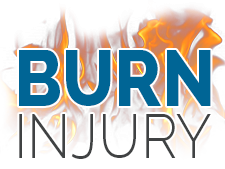Psychiatric Therapy
Psychiatric therapy can play a large role in the recovery process for victims of severe burns. Burns can cause physical deformities and limitations that may have adverse effects on the patient’s mental and emotional state. Patients may also suffer from emotional trauma as a result of the incident that caused the burns. Psychiatric therapy can help patients develop a positive mental state, which is necessary for physical and occupational therapy to be successful.
Psychiatric Therapy for Burn Recovery
Burn survivors are more prone to anxiety disorders and post traumatic stress disorder than victims of most other types of severe and life altering incidents. This is in part because of the excruciating pain that often plagues burn victims. Shock and helplessness are common feelings after a patient has suffered severe burns, especially if the patient is rendered physically impaired or disfigured. Reactions of loved ones can have a traumatic effect on victims, further worsening the patient’s mental state. Often there are nightmares and flashbacks associated with the incident that caused the burns.
Beginning Psychiatric Therapy
Physicians are beginning to find that anxiety disorders that are developed while under the care of medical professionals are very difficult to rectify once the patient has been discharged from the medical center. Beginning psychiatric therapy as soon as the patient is able to understand the situation is highly recommended, and is becoming common practice. Depending on the medical center, one skilled professional may be responsible for psychiatric therapy, occupational therapy, and physical therapy. If this is not the case, these professionals will typically work closely together in order to give the patient the most thorough and consistent care.
Pre-existing Psychiatric Disorders
In many cases, psychiatric disorders were present prior to the burn incident and played a role in the accident that caused the burns. In these cases it is much more difficult to bring the patient to a healthy mental state, but beginning psychiatric therapy as soon as possible following the accident can assist greatly in mental and emotional recovery. Guilty feelings are common in these cases, especially if loved ones were harmed in the accident.
Goals of Psychiatric Therapy
Psychiatric therapy for burn victims often combines drug therapy with cognitive behavioral therapy. The goals are to help the patient recognize thinking that may deter physical and emotional recovery from the burns in order to return to an independent lifestyle. There are usually many steps in the recovery process, but a willingness on the part of the patient to participate in recovery is necessary for healing to take place.
Sources:
“Adding Insult to Burn Injury.” John Hopkins Medicine. The Johns Hopkins Institute, n.d. Web. 31 Dec 2013. <http://www.hopkinsmedicine.org/psychiatry/about/publications/newsletter/archive/08_winter/burn_injury.html>.
Bronson, Megan. “Psychological and Emotional Impact of Burn Injury.” Phoenix Society for Burn Survivors. The Phoenix Society, n.d. Web. 31 Dec 2013. <http://www.phoenix-society.org/downloads/resources/ptss_impact.pdf>.
“Psychiatry of the Medically Ill in the Burn Unit.”PubMed.gov. 25.March (2002): 129-147. Web. 31 Dec. 2013. <http://www.ncbi.nlm.nih.gov/pubmed/11912936>.













